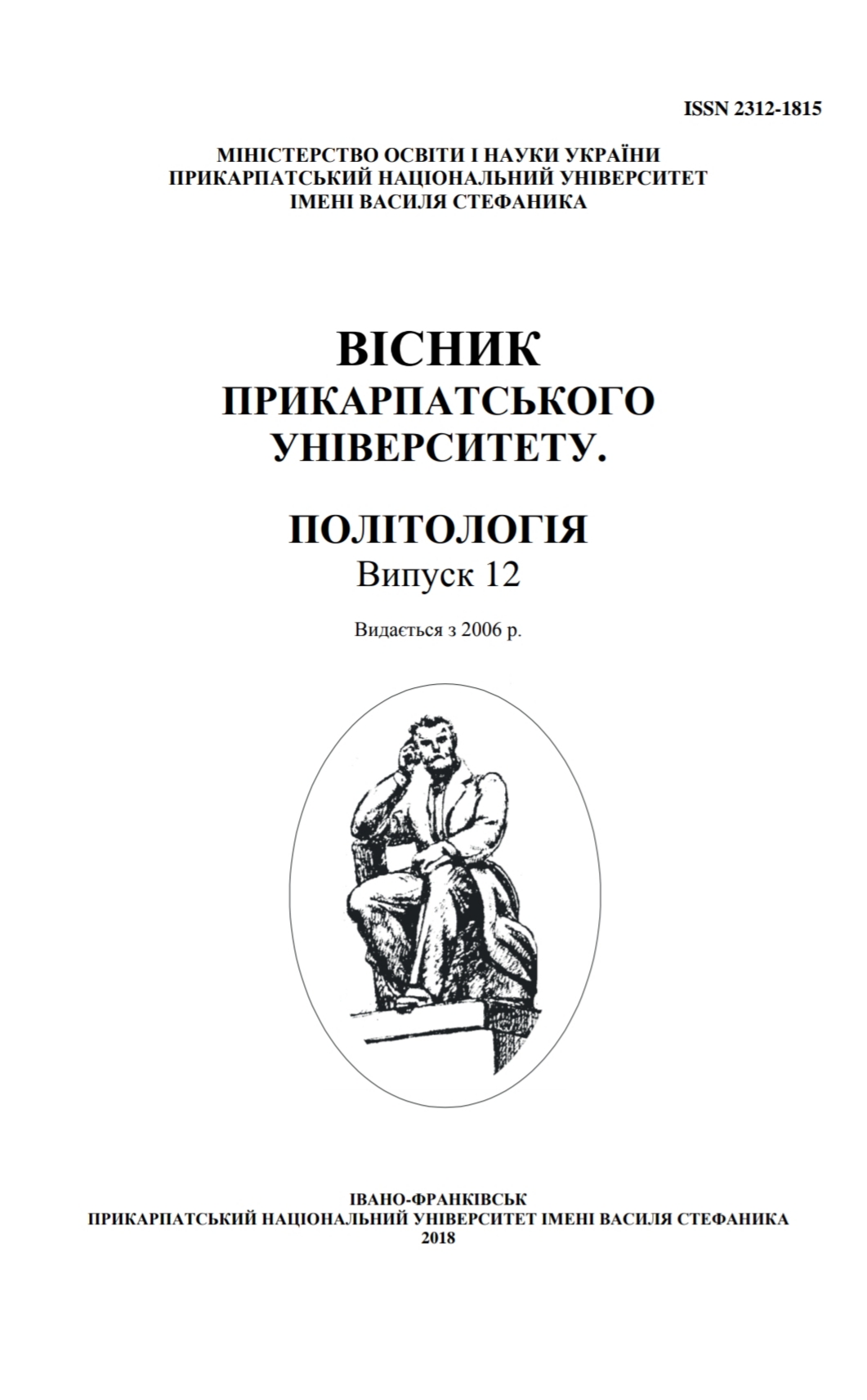The significance of the typologization method in the S. Eisenstadt’s methodology of the comparative historical-sociological study of empiers
Keywords:
Key words: S. Eisenstadt, empire, political system, comparative historical sociology, configurational analysis, typologization, typological comparison.Abstract
The peculiarities of using Schumel N. Eisenstadt's method of typologization in a comparative historicalsociological study of political systems are analyzed. The work of Israeli scientist ‘The Political Systems of Empires: The Rise and Fall of the Historical Bureaucratic Societies’ is on the focus. The theoretical basis of S.
Eisenstadt's typology of the empires is revealed. Particular attention is paid to its characterization of ‘centralized historical bureaucratic empires’.
It is clarified that S. Eisenstadt gave social science a valuable conceptual and methodological arsenal for understanding meaningful features, the history of the formation, development and dissolution of empires. The scholar focused on the systemic nature of the imperial regimes, the different social structures and institutions that characterized them, as well as the social processes that their rulers supported to preserve the systemic boundaries of their states. It was showed that to achieve his goal, S. Eisenstadt used a specific methodology - a comparative analysis of the substantial qualities of social structures, institutions and patterned social actions that develop within the social system and determine it. Following this methodology, the researcher proposed an
original typology of historical political systems. Among the types he has selected, the main subject of the analysis in the book is ‘centralized historical bureaucratic empires’, a characteristic feature of which is the institutionalization of autonomous political power, as well as the deliberate development of ‘free-floating resources’, which encourages social differentiation on a large scale. The S. Eisenstadt’s work significantly influenced the historical macrosociological studies of the empires of contemporary authors. Analyzing his scientific achievements, we obtain essential information about the theoretical and methodological means of studying empires and they can open up new perspectives for the comparative history of empires.


